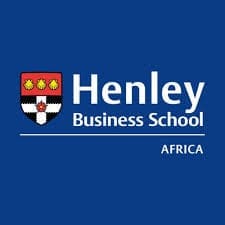Henley Business School Africa has become the first African institution to join the Future of Management Education Alliance, bringing continental perspectives to a network of 14 leading business schools collaborating on online and hybrid management education programs.
The Johannesburg-based school’s membership, announced September 29, expands the alliance’s geographic reach beyond North America, Asia, and Europe. Founded in 2018, FOME Alliance unites business schools around a shared digital platform designed to deliver what organizers describe as immersive and highly engaging online business education experiences.
“We are pleased to welcome Henley Business School Africa to the FOME Alliance,” said Harald Øverby, Chair of the alliance and Special Advisor for AI and Technology at BI Norwegian Business School in Oslo. The membership strengthens collective commitment to developing innovative, internationally focused degree programs, according to Øverby.
Henley Africa brings quadruple accreditation from UK, European, US, and African accrediting bodies including AMBA, EQUIS, AACSB, and AABS. The school ranks in the top 100 for MBA programs and top 25 for executive education according to Financial Times rankings, positioning it as what supporters describe as the highest-ranked, locally accredited business school in southern Africa for executive education.
Jon Foster-Pedley, Associate Pro-Vice Chancellor for Global Engagement at the University of Reading and Dean of Henley Africa, characterized joining FOME as a pivotal step toward the goal of becoming Africa’s number one AI business school by 2030. “This alliance gives us an unparalleled opportunity to learn, share, and co-create the future of management education,” Foster-Pedley said.
The school operates from its Johannesburg campus offering programs including a global and flexible Executive MBA, undergraduate options, a one-year Work Readiness Programme for recent high school graduates, a Postgraduate Diploma in Management practice, and a Doctorate in Business Administration. All programs are offered part-time to enable students to work while studying, with many customizable for corporate clients.
Steve Muylle, Deputy Chair of FOME Alliance and Professor at Vlerick Business School in Brussels, stated that Henley Africa brings distinctive perspective and deep regional expertise that will enrich the international network. The collaborative model established by FOME founders distributes costs of digital course development and advanced technologies equitably among members.
The alliance creates what proponents describe as a supportive space where course designers share best practices, test learning technologies, and develop engaging learning experiences. By pooling expertise across its network, FOME delivers flexible programs designed to meet needs of busy learners while maintaining what it characterizes as evidence-based approaches to EdTech and global management learning.
Jonathan Stock, Head of Innovation at Henley Africa, emphasized the school’s role as the first African business school in what he termed this prestigious alliance. “We’re not just another member, we are a voice for the continent,” Stock said, noting that Henley Africa will bring African perspective to the global stage while sharing expertise in integrating technologies like VR and AI into learning experiences.
Henley Africa engages in research relevant to African context around artificial intelligence, digital learning, virtual reality, and immersive learning. The school’s research aims to transform perspectives, encourage debate, and provide real-world solutions to pressing issues in African business and society, according to institutional descriptions.
The school has achieved Level 1 status, the highest possible, for two consecutive years under South Africa’s Broad-Based Black Economic Empowerment legislation. This commitment to advancing sustainability and correcting historic economic imbalances aligns with what management describes as the mission to build the people who build the businesses that build Africa.
Whether Henley Africa’s membership translates into meaningful expansion of quality management education access across the continent or primarily serves students already connected to elite educational networks remains an open question. The school’s Johannesburg location and part-time program structure suggest focus on employed professionals rather than broader population segments.
The FOME Alliance’s shared online learning platform represents what founders envisioned as giving member schools access to high-quality online courses taught by renowned academic experts. The model recognizes substantial investment required for digital course development while creating opportunities for collaborative innovation in business education delivery.
How effectively the alliance incorporates African business contexts and challenges into curriculum development will determine whether Henley Africa’s voice genuinely shapes program content or exists primarily as geographic representation. The school has already joined task forces on Teaching and Learning, EdTech, and AI to contribute insights toward keeping business education current and relevant.
The expansion to 14 members reflects FOME’s gradual growth from its 2018 founding by a smaller group of institutions. Yet questions persist about whether collaborative platforms can maintain quality standards while expanding membership and whether online delivery truly replicates the networking and immersive experiences traditionally associated with business school education.
For African business education, Henley’s membership potentially opens doors for broader continental participation in global management education conversations. Yet with tuition costs for Executive MBA programs typically exceeding what most African professionals can afford, the practical impact on management capacity building across the continent may prove limited despite the institutional prestige.
Source: newsghana.com.gh











